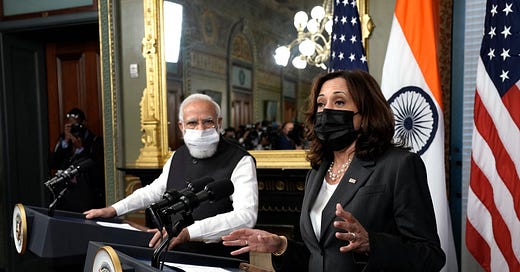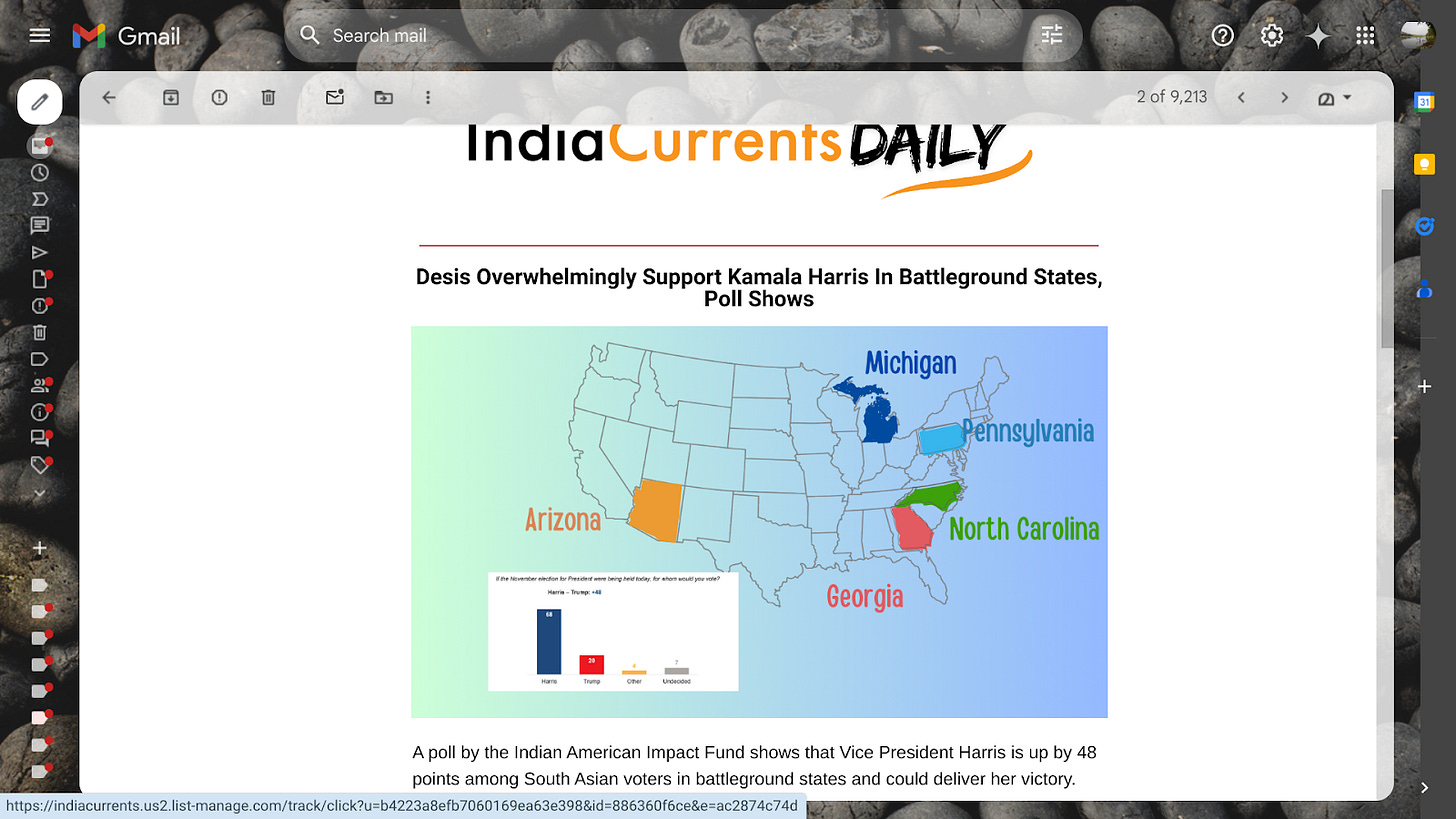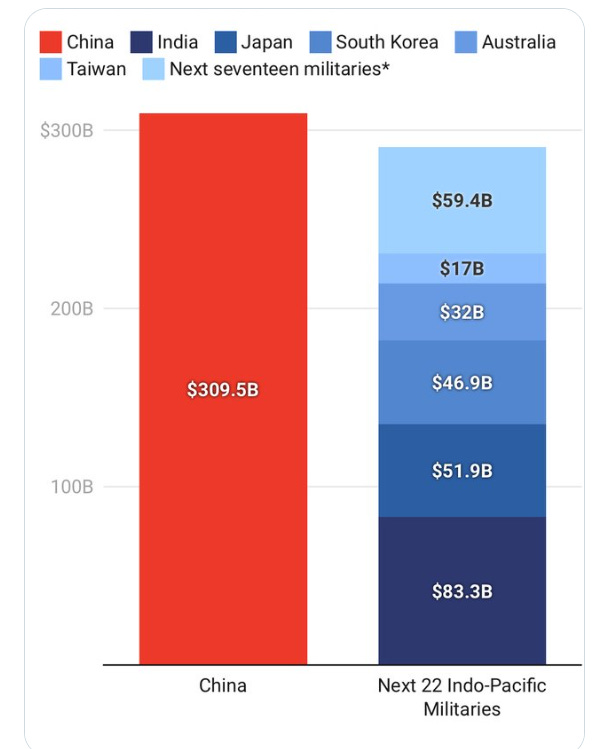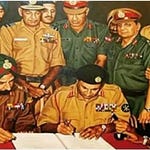A version of this essay was published by firstpost.com at https://www.firstpost.com/opinion/shadow-warrior-the-implications-of-a-kamala-harris-presidency-for-india-13828576.html
Here’s an AI-generated podcast based on this essay (courtesy Google’s NotebookLM): always entertaining and appealing.
Full disclosure: Parts of this essay were written by AI, and edited.
The entire sorry spat with the Canadians, the tit-for-tat expulsions of diplomats and a virtual breakdown of ties leads to a good question. Are the Americans behind it (and if so why?), because for all practical purposes, Canada takes the lead from its Five Eyes friends and mentors? Several commentators have suggested that this is so.
Trudeau is not a serious politician, as he demonstrated in this photograph in blackface acting allegedly as an “Indian potentate”.
But the Deep State is deadly serious. They have meddled in country after country, leading to the utter misery of their populations. I can, off the top of my head, count several: Salvador Allende’s Chile, Patrice Lumumba’s Congo, Saddam Hussein’s Iraq, Muammar Ghaddafi’s Libya, Bashar Assad’s Syria, not to mention Sihanouk’s Cambodia.
We have to make a distinction between the US public in general and the Deep State. The nation as a whole still believes in the noble ideals of the American Revolution, and American individuals are among the most engaging in the world; however, the Deep State is self-aggrandizing, and now poses a potent danger to the US itself as well as others. Alas, it is taking its eye off its real foe, China, with what probably will be disastrous consequences.
The Khalistani threat is a significant concern for India because it appears that the Deep State is applying pressure through proxies. Since it likes to stick to simple playbooks, we have some recent and nerve-racking precedents: Ukraine https://www.firstpost.com/opinion/trudeau-is-us-deep-states-zelensky-2-0-why-india-should-fight-canadas-diplomatic-war-with-all-its-might-13827294.html) and Bangladesh https://rajeevsrinivasan.substack.com/p/ep-134-the-geo-political-fallout.
So what exactly is in store for India after the new POTUS is chosen, which is just two weeks away? US betting markets are suggesting that Donald Trump will win, but it’s likely that Kamala Harris will emerge as POTUS. I was among the few in India who predicted a Trump win in 2016; admittedly I predicted a Trump win in 2020, and I do believe there were um… irregularities. I think in 2024 Trump would win if it were a fair fight, but it is not.
But I fear the vote will be rigged and lopsided, partly because of the vast numbers of illegal aliens who will be, or already have been, allowed to vote (by mail). Every day, I hear of strange practices in swing states, as in this tweet. There is room for a lot of irregularities.
On the other hand, the Indian-American voter (“desi”), apparently, will continue to vote for the Democratic Party, with some reason: there is racism in the Republican rank and file; but then let us remember that anti-black racism in the US South had Democratic roots: George Wallace and Bull Connor and “Jim Crow”. The Republicans had their “Southern Strategy” too, to inflame racial tensions. The racism Indian-Americans, particularly Hindus, face today is more subtle, but I doubt that the indentured labor and Green Card hell will get any better with Kamala Harris as President. I suspect 100+ year waits for a Green Card will continue.
A Harris presidency could introduce several challenges for India across various domains, including economics, foreign policy, terrorism, and military affairs. It is appropriate to consider historical contexts, especially the stances of previous Democratic administrations and notable figures. In particular, Bill Clinton, Madeleine Albright and Robin Raphel come to mind: they were especially offensive to India and India’s interests.
The Biden Amendment, and Bill Clinton/Hillary Clinton’s efforts delayed India’s cryogenic rocket engine and thus its space program by 19 years. https://www.rediff.com/news/column/who-killed-the-isros-cryogenic-engine/20131118.htm
One of the most vivid historical examples is that of Japan’s economy. After a dream run in the 1960s and 1970s, when they seriously threatened American supremacy in trade based on their high-quality and low-priced products, the Japanese were felled by the Plaza Accord of 1985, which forced the yen to appreciate significantly against the dollar.
The net result was that Japanese products lost their competitive pricing edge. Furthermore, it led to an interest rate cut by the Japanese central bank, which created an enormous asset bubble. The bursting of that bubble led to a Lost Decade in the 1990s, and the nation has not yet recovered from that shock. One could say that the reserve currency status of the dollar was used to bludgeon the Japanese economy to death.
Having observed this closely, China took special care to do two things: one, to infiltrate the US establishment, and two, to lull them into a false sense of security. Captains of industry were perfectly happy, with their short-term personal incentives, to move production to China for increased profits. Wall Street was quite willing to finance China, too. Politicians were willing to suspend disbelief, and to pursue the fantasy that a prosperous China would be somehow like America, only with East Asian features. Wrong. China is a threat now.
But the Deep State learned from that mistake: they will not let another competitor thrive.
The possible economic rise of India is something that will be opposed tooth and nail. In the background there is the possible collapse of the US dollar as the reserve currency (i.e. dedollarization), because of ballooning US debt and falling competitiveness, and the emergence of mechanisms other than Bretton Woods and the SWIFT network (e.g. the proposed blockchain-based, decentralized BRICS currency called UNIT).
Besides, the Deep State has a clear goal for India: be a supine supplier of raw materials, including people; and a market for American goods, in particular weapons. Ideally India will be ruled by the Congress party, which, through incompetence or intent, steadily impoverished India: see how nominal per capita income collapsed under that regime until the reforms of 1991 (data from tradingeconomics and macrotrends). The massive devaluations along the way also hurt the GDP statistics, with only modest gains in trade.
Another future that the Deep State has in mind for India could well be balkanization: just like the Soviet Union was unraveled, it may assiduously pursue the unwinding of the Indian State through secession, “sub-national diplomacy” and so forth. The value of India as a hedge against a rampaging China does not seem to occur to Democrats; in this context Trump in his presidency was much more positive towards India.
Chances are that a Harris presidency will cost India dear, in all sorts of ways:
Foreign Policy Challenges
1. Kashmir, Khalistan and Regional Dynamics: Harris has previously expressed support for Kashmiri separatism and criticized India's actions in the region. This stance could complicate U.S.-India relations, especially if she seeks to engage with groups advocating Kashmiri secession. The persistent support for Khalistan, including its poster boy Gurpatwant Singh Pannun who keeps warning of blowing up Indian planes, shows the Democrats have invested in this policy.
2. Alignment with Anti-India Elements: Her connections with leftist factions within the Democratic Party, which have historically taken a hard stance against India, may result in policies that are less favorable to Indian interests. The influence of figures like Pramila Jayapal could further strain relations.
3. Balancing Act with China: While the U.S. aims to counter Chinese influence in Asia, Harris's approach may involve a nuanced engagement with China that could leave India feeling sidelined in strategic discussions. Barack Obama, if you remember, unilaterally ceded to China the task of overseeing the so-called “South Asia”. Harris may well be content with a condominium arrangement with China: see https://www.firstpost.com/opinion/shadow-warrior-a-us-china-condominium-dividing-up-the-world-between-themselves-12464262.html
4. Foreign Policy Independence: An India that acts in its own national interests is anathema to many in the US establishment. The clear Indian message that the Ukraine war and perhaps even the Gaza war are unfortunate events, but that they are peripheral to Indian interests, did not sit well with the Biden administration. In a sense, just as Biden pushed Russia into China’s arms, he may well be doing the same with India: the recently announced patrolling agreement between India and China may also be a signal to the Harris camp.
Terrorism and Security Concerns
1. Counterterrorism Cooperation: A shift towards prioritizing “human rights” may affect U.S.-India counterterrorism cooperation, as can already be seen in the case of Khalistanis. If Harris's administration emphasizes civil liberties over security measures, it could limit joint operations aimed at combating terrorism emanating especially from Pakistan..
2. Support for Separatist Movements and Secession: Increased U.S. support for groups that advocate for self-determination in regions like Kashmir might embolden separatist movements within India (see Sonam Wangchuk in Ladakh, and the alleged Christian Zo nation that Sheikh Hasina said the US wanted to carve out of India, Bangladesh and Myanmar), posing a significant internal security challenge.
Military Affairs
1. Defense Collaborations: Although military ties have strengthened under previous administrations, a Harris presidency might introduce hesitancy in defense collaborations due to her potential focus on alleged human rights issues within India's military operations. This is a double-edged sword because it could also induce more self-reliance, as well as defense exports, by India.
2. Historical Precedents: The historical context of U.S. military interventions in South Asia, such as the deployment of the Seventh Fleet during the Bangladesh Liberation War in 1971, raises concerns about how a Harris administration might respond to regional conflicts involving India.
3. Strategic Partnerships: Any perceived shift in U.S. commitment to India as a strategic partner could embolden adversarial nations like China and Pakistan, thereby destabilizing the region further. This, at a time when China is vastly outspending all its neighbors in Asia in its military budget (data from CSIS).
Economic Implications
1. Increased Scrutiny on “Human Rights”: Harris's administration may adopt a more critical stance towards India's human rights record, particularly concerning alleged violations of minority rights and alleged mistreatment of dissent, although there is reason to believe this is mostly a convenient stick to beat India with rather than a real concern: we see how the real human rights violations of Hindus in Bangladesh raise no alarms. This scrutiny could have economic repercussions, such as reduced foreign investment from companies concerned about reputational risks associated with human rights violations, and possible sanctions based on the likes of the USCIRF’s (US Council on International Religious Freedom) report.
2. Shift in Trade Policies: Historical Democratic administrations have often prioritized labor rights and environmental standards in trade agreements. If Harris follows this trend, India might face stricter trade conditions that could hinder its export-driven sectors.
3. Focus on Domestic Issues: Harris's potential prioritization of domestic issues over international relations may lead to a diminished focus on strengthening economic ties with India, which could stall ongoing initiatives aimed at boosting bilateral trade and investment.
Social Issues
1. Anti-Hindu feeling: There has been a demonstrable increase in antipathy shown towards Hindus in the US, with a number of incidents of desecration of Hindu temples, especially by Khalistanis, as well as economic crimes such as robberies of jewelry shops. The temperature online as well as in legacy media has also risen, with offensive memes being bandied about. A notable example was the New York Times’ cartoon when India did its Mars landing. And you don’t get more Democrat-leaning than the New York Times.
In summary, while Kamala Harris's presidency may not drastically alter the trajectory of U.S.-India relations established under previous administrations, given a convergence of major geo-political interests, it could introduce significant challenges stemming from her focus on so-called “human rights” and alignment with anti-India factions within her party. These factors could negatively influence economic ties, foreign policy dynamics, counterterrorism efforts, and military collaborations between the two nations.
Four more years of tension: revival of terrorist attacks in Kashmir, the chances of CAA-like riots regarding the Waqf issue, economic warfare, a slow genocide of Hindus in Bangladesh. It’s enough to make one nostalgic for the Trump era: yes, he talked about tariffs and Harley-Davidson, but he didn’t go to war, and he identified China as enemy number one.
2000 words, 23 October 2024



















Share this post